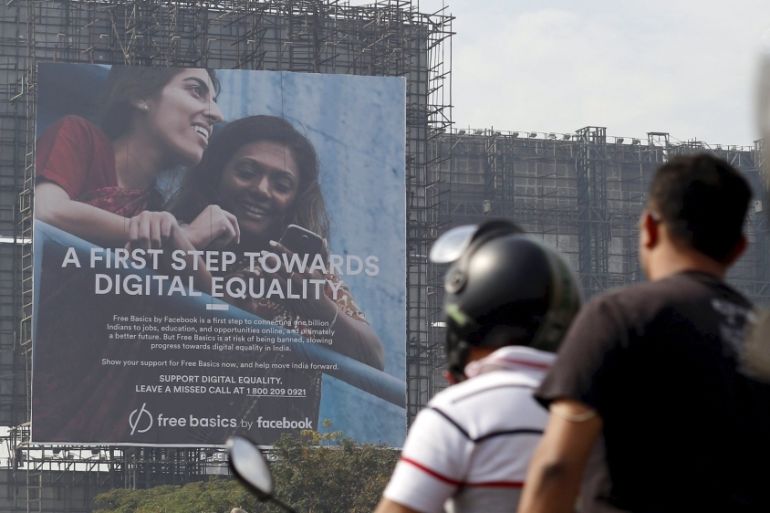Facebook testing commercial internet service in India
Facebook is testing a low-cost wi-fi service in rural India, allowing users to access the internet via local hot spots

After India’s decision to ban Facebook’s free but limited Internet service, Free Basics, the social media giant is testing a fast, low-cost commercial wi-fi service in the country, according to reports.
“We are testing the Express Wi-Fi program in India that allows customers to purchase fast, reliable and affordable data packages from their local ISP [internet service providers] to access the internet via local hot spots,” a Facebook spokesperson told the Economic Times of India on Monday.
Keep reading
list of 4 itemsHong Kong’s first monkey virus case – what do we know about the B virus?
Why will low birthrate in Europe trigger ‘Staggering social change’?
The Max Planck Society must end its unconditional support for Israel
Express Wi-Fi has already completed a trial period in the country with the local state-run telecoms company Bharat Sanchar Nigam Ltd, and about 125 local wi-fi hotspots, the spokesperson said.
The Express Wi-Fi software is expected to help local ISPs to sell and provide wi-fi service in rural, remote areas and help millions of Indians to connect to the internet for the first time.
READ MORE: India blocks Facebook’s Free Basics app
Facebook’s Free Basics program, which runs in 42 developing countries, offers pared-back internet services on mobile phones, along with access to the company’s own social network and messaging services, without charge.
The program is part of Facebook’s wider Internet.org project, which aims to “bring internet access and the benefits of connectivity to the two-thirds of the world that doesn‘t have them”.
In February, India introduced rules to prevent ISPs from having different pricing policies for accessing different parts of the web, effectively banning Facebook’s initiative.
Critics in India and elsewhere have said that by offering a free but limited package, Facebook and its telecommunications partners are violating the principle of net neutrality. It is unacceptable for large corporations to get involved with picking and choosing who gets access to what and how fast, they said.
Critics have also argued that Facebook CEO Mark Zuckerberg was trying to create a “walled-off” version of the internet, in an effort to lure Indian consumers into paying for extra services from Facebook.
READ MORE: India – Unlocking public wi-fi hotspots
However, Zuckerberg has said that he wouldn’t stop trying to “connect India” after the Indian regulator’s decision to ban Free Basics.
“Connecting India is an important goal we won’t give up on, because more than a billion people in India don’t have access to the internet,” he said in a Facebook post.
“We know that connecting them can help lift people out of poverty, create millions of jobs and spread education opportunities.”
Google ahead in India
India is seen as the last big market for Internet companies, with a fast-growing user base that is second only to China’s. Only 462 million out of India’s 1.3 billion people have Internet access.
Google has already taken over Facebook in terms of providing free or at least more affordable internet access to Indians.
Last year, Google announced it would bring high-speed wi-fi to 100 Indian rail stations by the end of 2016. The company is currently providing this service in at least 23 railway stations around the country.
Google’s service is currently free, but the company is expected to start charging users a small amount of money for the railway wi-fi service in the near future.